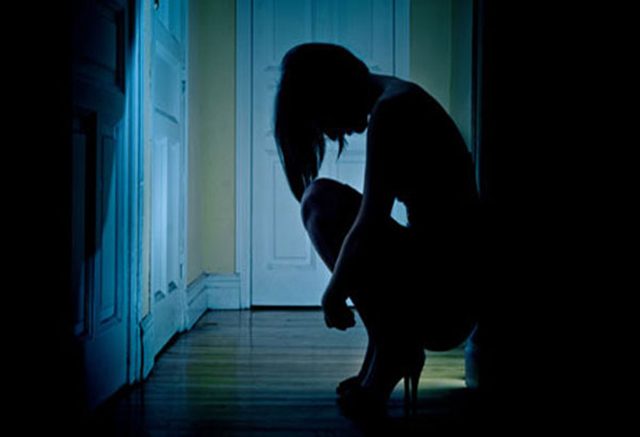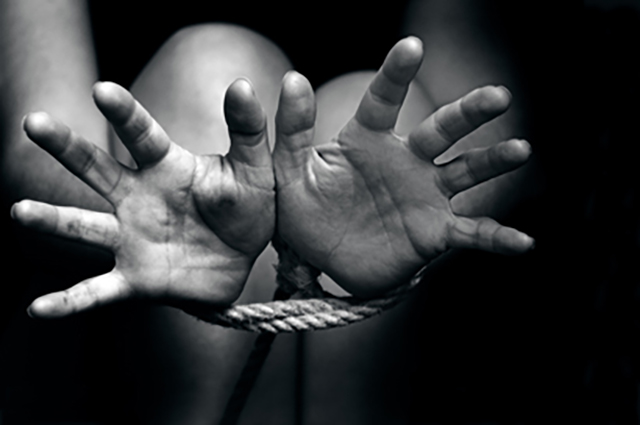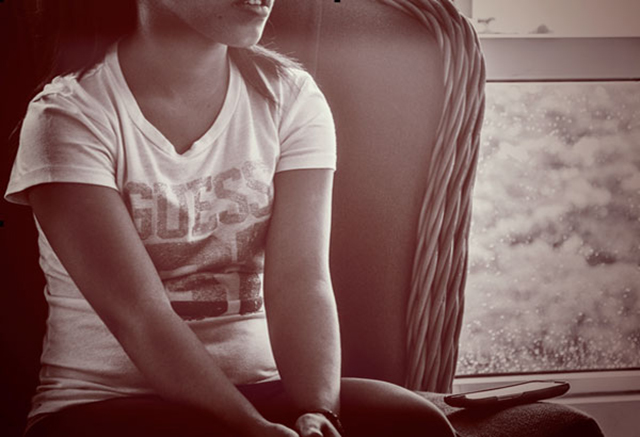
DIANI (Thomson Reuters Foundation) — Sixteen-year-old Fatma doesn’t bat an eyelid when asked what she has been doing since dropping out of school two years ago.
“Sex,” she replied, giggling into the layers of her bright red headscarf. “It’s easy to get men. I find them at the market, concerts, weddings and on the beach.”
“Most girls in my village do it. I can get 100 ($1) to 500 shillings. Sometimes a tourist will give 1,000 ($10).”
Welcome to Kenya’s idyllic palm-fringed beach resort of Diani: Where the sands are pearl white, the waters clear turquoise — and you can have sex with a child for a dollar.
From Thailand and the Philippines to the Dominican Republic and Brazil, sex tourism is common in developing countries where poverty and discrimination push millions of women into commercial sexual exploitation.
Kenya is no different.
But the extent to which child prostitution is not only prevalent, but also socially accepted, in towns and villages along the East African nation’s coast has left local authorities and charities struggling to halt the illicit trade.
According to the latest data available, one in three girls aged between 12 and 18 in Kenya’s coastal area is engaged in casual sex work, a 2006 report by the U.N. children’s agency Unicef and the Kenyan government states.
That is an estimated 15,000 girls.
While these figures date back over a decade, little has improved, say campaigners and government officials. A lack of development, few job opportunities and weak law enforcement has, in fact, allowed the trade to thrive.
“It’s getting worse. In about 90 percent of families in a village, you will find at least one girl who is a victim of commercial sexual exploitation,” said Athuman Jiti, a public administrator in Kwale county, where Diani is located.
“Sometimes it’s the parents telling them to go out and bring home food, sometimes the girls do it on their own — the problem is, it’s highly normalized.”
Fertile ground
Offering everything from big game safaris to sandy white beaches, Kenya attracts more than a million visitors annually from countries such as China, Germany, France and Britain.
Tourism is a vital economic pillar, providing millions with employment and accounting for about 10 percent of the country’s gross domestic product.
But in cities and towns such as Mombasa, Diani, Kilifi and Malindi dotted along the Indian Ocean coastline, foreign and Kenyan visitors have for years stoked demand for sex with young women — and minors.
Kwale county — where almost half the population lives on less than $1.50 a day — is fertile ground for exploitation.
Deep-rooted sexism ensures deep-seated and daily discrimination, while engrained customs from polygamy to early marriage leave girls and women disproportionately vulnerable.

Some children are trafficked from other areas of Kenya expressly for sexual slavery, but most victims are locals who are pushed into the trade more subtly, say campaigners.
“Often friends or family members are involved in it and they initiate them into it, or they are approached by a man who gives them attention and a few hundred shillings after sex,” said Dorcas Namwaya Mwachi from the Coalition on Violence Against Women, a charity working in communities around Diani.
“Their families are poor and cannot afford to look after them, so the girls continue to do it to get money to contribute to the home, or buy themselves small things like a new dress, or even sanitary pads, which they cannot otherwise afford.”
Many girls know the risks — pregnancy, violence, disease — but without other options, continue to sell sex, Mwachi added.
Community complicity
Even on a weekday evening in off-peak season, the scene at one of the popular tourist nightclubs on the Diani Beach Road is as cliched as it is true.
On the dance floor, adolescent girls gyrate to the rhythmic beat of Congolese rumba as two elderly European men in tropical shirts and Bermuda shorts watch on. Within an hour, the men leave with the two girls — both look barely 16.
No one raises an eyebrow — not the waiter who collects their bill, nor the bouncers who open the door as they leave, not the taxi driver waiting outside.
Tour operators say it is difficult to crack down as the girls often lie about their age and carry no identification.
“The tourism sector has taken some steps to stop child sex tourism, but they tend to find a way around it,” said Francis Mkala from the South Coast Association of Local Tour Operators.
“The hotels, for example, have a code of conduct banning guests from taking minors to their rooms. But the tourists are now renting out private villas, where they take the children and carry out their business undisturbed.”

The child sex trade has become so widely accepted that girls no longer just have sex with tourists for money, but also with local men for anything from a ride home to a pair of shoes, or even a bag of sugar, say campaigners and officials.
Edward Wanjala, a probation officer in Kwale’s Msambweni constituency where Diani is located, says prosecutions are few due to complicity within the community.
“Everyone is benefiting in some way — the families get some money from the girls, the bars and nightclubs get customers because of the girls, the taxi drivers get something for taking the customers to the girls,” said Wanjala.
“The social acceptance means people don’t even see it as a crime, and the girls being exploited do not see themselves as victims. So who will report the case? Who will testify?”
Raising awareness about the harmful impact of child prostitution is not enough, he admitted, adding that vocational training and jobs were needed to curb trade.
Eighteen-year-old Saumu, who began selling sex at 15, holds out little hope of a better future: she has a 3-year-old son from one client, and is eight months pregnant by another.
“I had wanted to become a doctor, but my mother couldn’t pay the school fees so I dropped out and started going with men for money,” she said, sitting in a community center in Kombani town, 12 km (7 miles) from Diani.
“It’s not where I wanted my life to be. But when there is no option, you do it and slowly it becomes a habit.” — Reporting by Nita Bhalla; Editing by Lyndsay Griffiths









